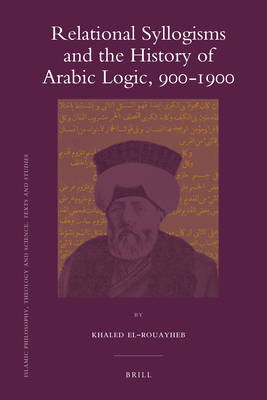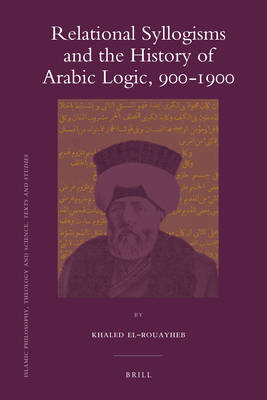
Je cadeautjes zeker op tijd in huis hebben voor de feestdagen? Kom langs in onze winkels en vind het perfecte geschenk!
- Afhalen na 1 uur in een winkel met voorraad
- Gratis thuislevering in België vanaf € 30
- Ruim aanbod met 7 miljoen producten
Je cadeautjes zeker op tijd in huis hebben voor de feestdagen? Kom langs in onze winkels en vind het perfecte geschenk!
- Afhalen na 1 uur in een winkel met voorraad
- Gratis thuislevering in België vanaf € 30
- Ruim aanbod met 7 miljoen producten
Zoeken
Relational Syllogisms and the History of Arabic Logic, 900-1900
Khaled El-Rouayheb
€ 277,95
+ 555 punten
Omschrijving
Relational inferences are a well-known problem for Aristotelian logic. This book charts the development of thinking about this anomaly, from the beginnings of the Arabic logical tradition in the tenth century to the end of the nineteenth. Based in large part on hitherto unstudied manuscripts and rare books, the study shows that the problem of relational inferences was vigorously debated in the thirteenth, fourteenth and fifteenth centuries. In the course of the seventeenth and eighteenth centuries, Ottoman logicians (writing in Arabic) came to recognize relational inferences as a distinct kind of 'unfamiliar syllogism' and began to investigate their logic. These findings show that the development of Arabic logic did not - as is often supposed - come to an end in the fourteenth century. On the contrary, Arabic logic was still being developed by critical and fecund reflections as late as the eighteenth and nineteenth centuries.
Specificaties
Betrokkenen
- Auteur(s):
- Uitgeverij:
Inhoud
- Aantal bladzijden:
- 304
- Taal:
- Engels
- Reeks:
- Reeksnummer:
- nr. 80
Eigenschappen
- Productcode (EAN):
- 9789004183193
- Verschijningsdatum:
- 14/06/2010
- Uitvoering:
- Hardcover
- Formaat:
- Genaaid
- Afmetingen:
- 168 mm x 244 mm
- Gewicht:
- 635 g

Alleen bij Standaard Boekhandel
+ 555 punten op je klantenkaart van Standaard Boekhandel
Beoordelingen
We publiceren alleen reviews die voldoen aan de voorwaarden voor reviews. Bekijk onze voorwaarden voor reviews.









